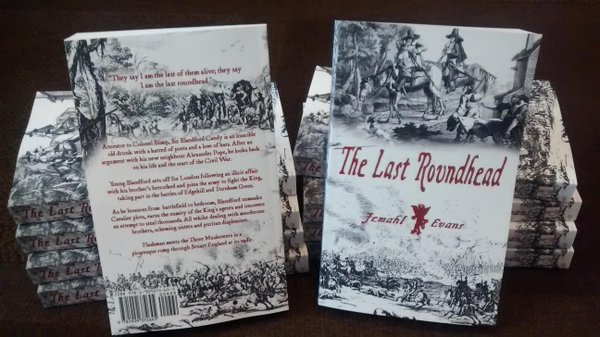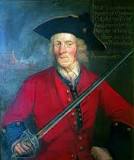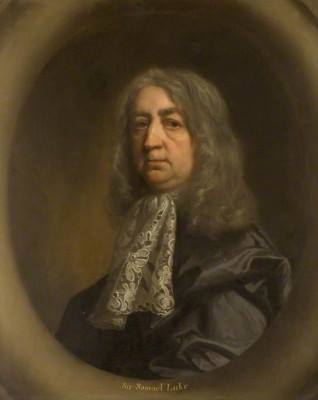The Seventeenth Century was highly literate and the printing press really was a contemporary information superhighway.
Jemahl Evans
I’m delighted to welcome Jemahl Evans as my guest today. Jemahl is a fellow enthusiast of the era of the English Civil Wars and its aftermath, so I asked him what provoked his interest in this period. Here ‘s his reply:


The idea for The Last Roundhead came to me on a wet Friday afternoon in 2009. My Year 8 class (who were remarkably efficient in sidetracking me from my lesson plans to tell them historical anecdotes) were supposed to be finishing the English Civil War as a topic – Cromwell’s death and The Restoration. As we started the lesson outline and objectives, a young man (I shall call him Chuckles because, a, I cannot remember his real name, b, everyone called him Chuckles, and c, he really did chuckle a lot) put his hand up.
‘Yes,’ I said.
‘Is that it?’ asked Chuckles.
‘What do you mean?’
‘Is that it; what happened next? What about all the Roundheads and Cavaliers? The King comes back and they all party?’
‘Well,’ I said, and then stopped myself, realising that this was a work evasion tactic and just how big the question really was. But, it was last lesson on a Friday; it had been a long week.
How do you explain in a lesson the long shadow the Civil War cast, the Wars with France, the Glorious Revolution, the American colonies, the slave trade, pirates, The Enlightenment, theatre and literature, Isaac Newton, Whigs and Tories, the birth of modern Britain in 40 minutes flat?

Hiseland, the Last Cavalier
So, I told them the story of William Hiseland – the last cavalier. Hiseland had been born in 1620, fought for the King at Edgehill, and followed the colours for the next seventy years fighting under Marlborough at Malplaquet in 1709, became one of the first Chelsea Pensioners, and married at the grand old age of 100, only dying in 1733. Look him up, he had an amazing life!
As my class filed out, Chuckles chuckling happily at the lack of work, I started thinking about the last roundheads. Hiseland had been feted as a loyal subject of the crown, but the men who fought under Cromwell faced a far more uncertain life after the restoration.
I didn’t start writing straight away; the idea sat and germinated as I gathered sources together and read a lot. The Seventeenth Century was an unexplored country for me historically. I hadn’t really studied it since my A levels a nearly thirty years ago, and the National Curriculum means it is rarely taught past Year 8 in schools. However, I had studied restoration satire as a minor in my first degree, and the poem Hudibras by Samuel Butler really became my focus. Butler had written the scathing indictment of puritans and roundheads centred about Sir Samuel Luke (Sir Marmaluke in the poem) Scoutmaster General to the Army under Essex and Governor of Newport Pagnell.

Samuel Luke National Portrait Gallery London
The poem is incredibly biased and one sided, and particularly vindictive as Butler had worked for Luke during the first civil war (1642 – 46) after being dismissed from his previous employment under a cloud. So, The Last Roundhead became a response to Hudibras by one of the characters pilloried in it.
In 2010, I came home to Wales when my father died and my mother was diagnosed with breast cancer. Teaching part-time gave me a lot more time to start scribbling things down, and in the summer of 2013 I began writing seriously and trying to put a novel together. It takes the form of a Georgian Apologia by an unreliable, and irascible, narrator out to clear his rather sullied reputation. I peopled it, as far as possible, with real men and women from the time and used their words if I could. That gave me the opportunity to include individuals like Lucy Hay (the real Milady D’Winter who actually did purloin the Queen of France’s jewels), Margaret Cavendish, Jane Whorwood and Anne Crosse, all women who pushed at the boundaries of social norms, as well as the politicians and generals that always dominate our history.
The power of the written word during the period really influenced me, newsbooks, letters, journals, memoirs – people wrote about everything, all the time. I think in our modern world of the internet, TV, film, radio, pro sports etc, it is very easy to forget just how important poetry, the theatre and the bible were to ordinary people. The Seventeenth Century was highly literate and the printing press really was a contemporary information superhighway. It meant lots of literary references that would be natural to someone born in the period, and language style that mimics the period vernacular. There is some language that could be described as a bit fruity, but all of it comes from period letters and poems. When you quote Rochester that can happen!
The Last Roundhead was picked up by Holland House Books in 2014 and published in August 2015. It’s been well received, with good reviews in The Times and from the Historical Novel Society, and is available from Amazon and other retailers.
